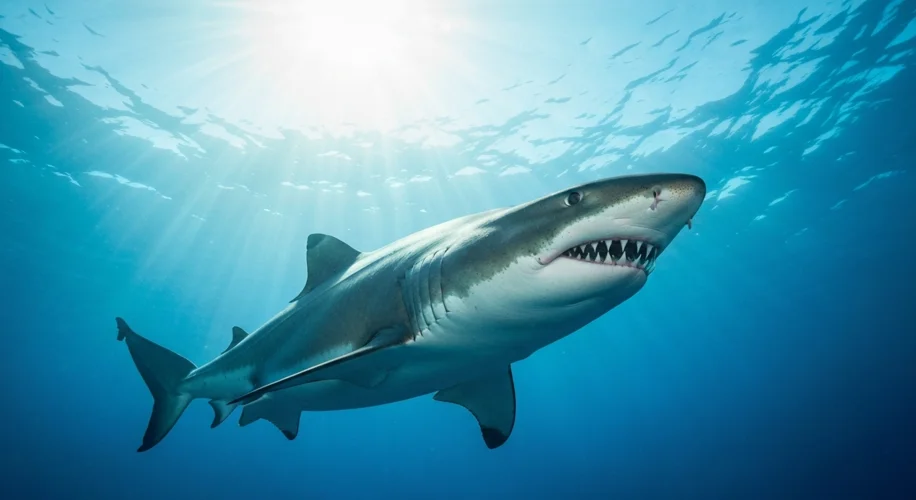Did you know that the very building blocks of life in our oceans are under threat? We often talk about the visible impacts of climate change – rising sea levels, more intense storms – but there are subtle, yet powerful, changes happening beneath the surface that affect entire ecosystems. A recent study highlighted in The Guardian has shed light on a disturbing consequence of increased carbon dioxide in our atmosphere: ocean acidification, and its potential to weaken one of nature’s most formidable predators – sharks.
As an atmospheric scientist, I’m fascinated by the intricate ways our planet’s systems are interconnected. Carbon dioxide (CO2) doesn’t just stay in the air; it dissolves into our oceans. When this happens, it triggers a chemical reaction that lowers the water’s pH, making it more acidic. This process, known as ocean acidification, is a direct result of burning fossil fuels and other human activities.
So, how does this affect sharks? The study suggests that this increased acidity can erode shark teeth. Think about it: shark teeth are their primary tools for hunting, catching, and consuming prey. They are constantly growing and shedding, designed for strength and resilience. But when the ocean environment becomes more acidic, it can essentially wear down these vital weapons, making them less effective.
Imagine a shark, built to be a top predator, struggling to hold onto its food or even bite effectively because its teeth are becoming brittle or are eroding faster than they can be replaced. This isn’t just a minor inconvenience; it could have significant ripple effects throughout the marine food web. If sharks can’t hunt efficiently, populations of their prey might increase, leading to imbalances in the ecosystem.
This finding is a stark reminder that climate change impacts biodiversity in ways we might not immediately see or understand. It’s a tangible example of how atmospheric science directly influences marine life, and by extension, the health of our planet.
What’s particularly concerning is how these changes disproportionately affect vulnerable communities. Coastal populations, often reliant on healthy marine ecosystems for food and livelihoods, are on the front lines. Environmental justice is intrinsically tied to global climate patterns. The health of our oceans is a critical piece of that puzzle.
This research is crucial because it pushes us to think about conservation and policy interventions in new ways. It’s not just about protecting coral reefs or reducing plastic pollution, as important as those are. It’s also about understanding the chemical changes in the water and their downstream effects on species like sharks, which play a critical role in maintaining marine balance.
It’s a lot to take in, but knowledge is power. Understanding these complex connections helps us appreciate the urgency of addressing climate change. It’s a shared responsibility, and every piece of research like this adds to our collective understanding and motivates action for a healthier planet for all its inhabitants.

